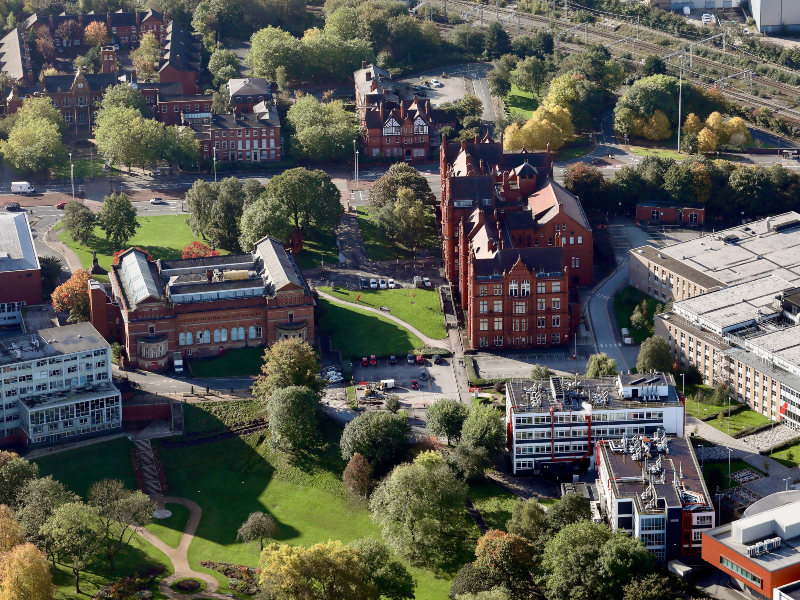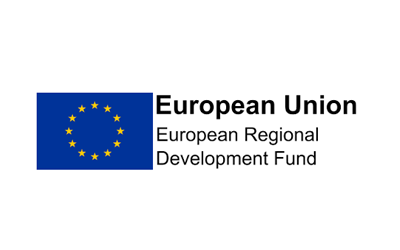Friends of Energy House 2.0 Impact Fund
Founded in 1896 as the Salford Royal Technical Institute, the University of Salford is the fastest growing university in the North West and the fifth fastest in the UK, with over 25,000 students, 2,300 staff and a global alumni community of over 175,000. We are a proud civic institution based in the heart of the Salford community. Collaboration with industry is in our DNA and is the driving force in all we do. We develop work-ready talent and have pioneered exceptional industry partnerships for over 100 years, leading the way in real-world experiences that prepare our students for life.

We have always played a major role in improving the lives of our communities. We now take this challenge more seriously than ever on a global scale. Climate change is arguably the single greatest threat that we face. The University of Salford recognises this and is playing a leading role in the fight against the climate emergency. More than 25% of all the energy used in the UK is used in our homes. Understanding how to use this energy more efficiently is therefore critical in the move to achieving net zero. That is why, in 2011, Salford built Energy House; the world’s first full sized, two-bedroom, brick built terraced house constructed inside an environmentally controllable chamber. The facility mimics real-life weather conditions and, in collaboration with industry, has enabled cutting-edge research, product innovation, and testing to improve energy efficiency at home.
Building on the foundations of success with Energy House, in 2022 the University of Salford is opening the doors of Energy House 2.0: the largest test and research facility of its kind. It contains two environmental chambers, each able to accommodate two detached houses. The chambers will be able to replicate environmental conditions experienced by 95% of the world’s population, creating temperatures ranging between -20˚C to +40˚C and simulating wind, rain, snow, and solar radiation. This new facility will provide exceptional opportunities to collaborate with industry, carry out unique research, and provide innovative solutions to help the international move to net zero, especially within the built environment sector.
Friends of Energy House 2.0
The University of Salford is now in its third year of holding a Friends of Energy House 2.0 community. The mission behind this network is for industry partners to join forces in raising the profile, amplifying the activity, and enhancing the impact of the world-leading Energy House 2.0 research facility.
Industry partners supporting the programme in 2024 include Barratt Developments, Bellway Homes, D+H UK, and Elmhurst Energy.

The £16 million Energy House 2.0 is part-funded by the European Regional Development Fund (ERDF), and will provide exceptional opportunities to collaborate with industry, carry out unique research, and provide innovative solutions to help the international move to net zero, especially within the built environment sector.
Friends of Energy House 2.0
Building on the success of last three years, the overall ambition of the Friends of Energy House 2.0 community is to raise awareness, improve education and understanding, and to build a talent pipeline in the areas of energy efficiency, sustainability, and climate change.
The Energy House 2.0 facility is at the heart of the University of Salford campus; therefore, it is critical for us that the impact of the fund primarily supports beneficiaries within the local community – Salford, Greater Manchester, and the North West.
We know that young people and teachers want to access more quality information and resources around climate change. Research conducted by YouGov and Oxfam found that 75% of teachers feel they haven’t received adequate training to educate students about climate change and 69% think there should be more teaching about climate change in UK schools. A survey by Green Schools Project / NUS found that 68% of pupils want to learn more about the environment and climate change.
We are also fully aware of the crippling impact that the energy crisis is having within homes across the UK currently, impacting the cost of living significantly and leaving many households facing deprivation. Salford is the 18th most deprived of England’s 317 local authorities and 34.8% of children within Salford are already living in poverty. We therefore know the significant challenges being faced on our doorstep, specifically around the question of how to effectively heat your home – something that Energy House Labs is tackling head-on, not just for the benefit of our climate, but also to help keep energy costs down for the average household.
Friends of Energy House 2.0 Impact Fund
To become a friend, industry partners have donated a minimum of £10,000 to the Friends of Energy House 2.0 Impact Fund. The EH2.0 Impact Fund is a collective source of funding with an ambition to drive activity and extend the reach of the new Energy House 2.0 facility, covering the following social impact areas:
- STEM PhD Studentship
- Educational Outreach Programmes
- Supporting Student and Local Community Initiatives
We are delighted to announce we have allocated Impact Fund funding to three brand new projects for 2025-26:
- University of Salford’s, Silvia Tedesco: Greener Houses of the Future aim to engage year 5 children from deprived Salford areas, introducing sustainable development, green building practices and renewable retrofitting. Students will explore carbon footprints, bio-based materials, and energy/water-saving technologies. The project aims to highlight how engineers reduce building carbon footprints while inspiring future responsible citizens. The children will design and build miniature eco-friendly houses with various materials and basic monitoring sensors.
- Rossendale Valley Energy: Net Zero Terrace Houses – Salford aims to make homes more energy-efficient and sustainable by using a standardised and modular process. The project seeks to share its findings and learnings with the community of Salford. To achieve this, they have conducted research and plan to engage the community through a series of workshops and webinars over the course of one year.
- The Country Trust: Food Discovery at St Joseph’s aims to deliver a Food Discovery programme to a class of children from St Joseph the Worker RC Primary School in Salford. Through the programme they will discover that their own health and wellbeing and the health of the planet are inextricably linked. They will develop a toolkit to set them up to be eco-literate citizens who are equipped with the skills, knowledge and passion to make informed decisions.
Get in touch
If you have any general enquiries, contact:
- Hannah Whitehurst - Philanthropy Manager - Major Gifts
- Ellie Jackson - Donor Engagement Officer
